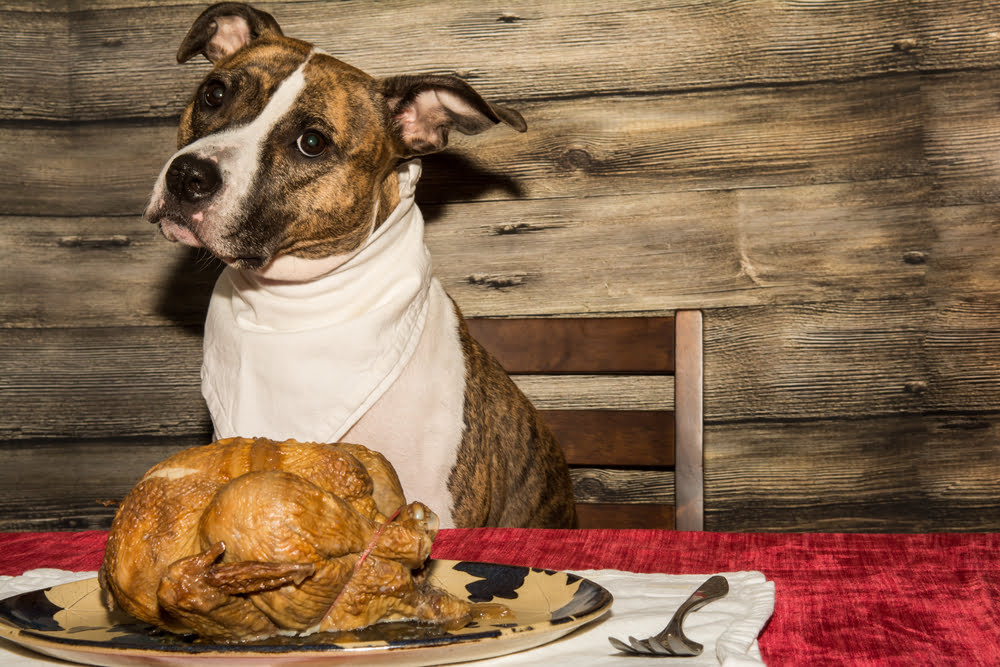Is Turkey Good for Dogs: Yes, turkey is good for dogs. It provides lean protein and essential nutrients.
Table of Contents
Turkey is a nutritious option for dogs, offering lean protein that supports muscle growth and energy. Rich in essential amino acids, it promotes a healthy coat and skin. Turkey also contains important vitamins and minerals, including B vitamins, zinc, and potassium, which boost overall health.
It’s a great alternative for dogs with allergies to common proteins like beef or chicken. Always ensure the turkey is cooked plain, without any harmful additives like onions or garlic. Remove bones to prevent choking hazards. Turkey can be a beneficial part of a balanced diet for dogs, contributing to their well-being.
Nutritional Value Of Turkey
Turkey is a healthy choice for dogs. It offers many nutrients that help them thrive. Adding turkey to your dog’s diet can improve their health.
Protein Content
Turkey is rich in protein. Protein helps build strong muscles. It also supports your dog’s immune system.
Lean turkey meat is an excellent protein source. It has less fat compared to other meats. This makes it a good option for dogs needing a low-fat diet.
Vitamins And Minerals
Turkey contains many essential vitamins and minerals. These nutrients support overall health and well-being.
| Vitamin | Benefit |
|---|---|
| Vitamin B6 | Boosts brain function |
| Vitamin B12 | Supports red blood cells |
| Niacin | Improves energy levels |
Turkey also provides important minerals:
- Zinc: Supports a healthy immune system
- Phosphorus: Helps build strong bones and teeth
- Potassium: Maintains proper muscle function
Feeding your dog turkey can offer a balanced diet. It ensures they get necessary nutrients for a happy, healthy life.


Health Benefits
Turkey can be a great addition to your dog’s diet. It offers many health benefits that can enhance your furry friend’s overall well-being. Let’s dive into some of the key advantages.
Muscle Development
Turkey is rich in lean protein. This helps build and maintain strong muscles in dogs. A good source of protein is essential for muscle growth and repair. Turkey also contains important amino acids. These are the building blocks of muscle tissue.
Incorporating turkey into your dog’s diet can help with muscle development. This is especially important for active dogs and puppies. They need a protein-rich diet to grow and stay strong.
Immune System Boost
Turkey is packed with vitamins and minerals. These nutrients are vital for a strong immune system. It contains vitamin B6 and niacin. These vitamins play a key role in immune function.
Turkey also provides zinc and selenium. These minerals help boost the immune system. They protect your dog from illnesses and infections. Adding turkey to your dog’s diet can help keep them healthy and active.
Potential Risks
Feeding turkey to dogs can be beneficial, but there are potential risks. It’s essential to understand these risks to keep your dog safe. Let’s explore some of the most common concerns.
Allergic Reactions
Some dogs may be allergic to turkey. These allergic reactions can cause various symptoms. Common signs include:
- Itchy skin
- Red, inflamed ears
- Digestive upset
If your dog shows these symptoms, stop feeding turkey. Consult your veterinarian for advice. They can help identify the allergy and suggest alternatives.
Digestive Issues
Turkey can cause digestive issues in some dogs. These issues often arise from:
- High-fat content
- Spices and seasonings
- Cooked bones
High-fat content can lead to pancreatitis. Spices and seasonings upset a dog’s stomach. Cooked bones can splinter, causing internal injuries.
To avoid these problems, serve plain, cooked turkey. Remove bones and skin before feeding your dog.
Safe Preparation Methods
Feeding turkey to dogs can be safe and healthy. Proper preparation is key. Dogs need food free from harmful additives. Safe preparation ensures your dog enjoys turkey without any issues.
Cooking Tips
Cooking turkey properly is crucial for your dog’s health. Follow these steps for safe cooking:
- Boil or bake turkey until fully cooked. Avoid frying.
- Remove all bones to prevent choking hazards.
- Ensure the turkey is plain, without any added ingredients.
- Let the turkey cool before serving to avoid burns.
Always check that the turkey is thoroughly cooked. Undercooked meat can cause health issues.
Avoiding Seasonings
Seasonings can be harmful to dogs. Here’s what to avoid:
| Seasoning | Reason |
|---|---|
| Salt | Can cause dehydration and sodium ion poisoning. |
| Garlic | May lead to anemia and digestive issues. |
| Onion | Can damage red blood cells. |
| Pepper | Can cause gastrointestinal upset. |
Always serve turkey plain and free from seasonings. This keeps your dog safe and healthy.
Portion Control
Portion control is crucial when feeding your dog turkey. Proper portions ensure a balanced diet and prevent obesity. Overfeeding can lead to health issues.
Recommended Serving Sizes
Serving size depends on your dog’s size and weight. Here’s a quick guide:
| Dog Size | Recommended Serving |
|---|---|
| Small (up to 20 lbs) | 1-2 oz |
| Medium (20-50 lbs) | 2-4 oz |
| Large (50-100 lbs) | 4-6 oz |
| Giant (over 100 lbs) | 6-8 oz |
These portions are for cooked, boneless, and skinless turkey.
Frequency Of Feeding
Dogs should not eat turkey daily. Turkey should be a treat, not a staple.
- Small dogs: Once a week
- Medium dogs: 1-2 times a week
- Large dogs: 2-3 times a week
- Giant dogs: 3 times a week
Always monitor your dog’s reaction to turkey. Ensure they digest it well.
Turkey-based Dog Foods
Turkey-based dog foods are gaining popularity among pet owners. They offer numerous health benefits for dogs. These foods are rich in protein and essential nutrients. Turkey is a lean meat, which helps in maintaining a healthy weight. It is also less likely to cause allergies compared to other meats.
Commercial Options
Many brands offer turkey-based dog foods. These products are convenient and nutritionally balanced. Here are some popular options:
| Brand | Product Name | Special Features |
|---|---|---|
| Blue Buffalo | Turkey & Potato Recipe | Grain-Free, High Protein |
| Wellness | Turkey & Sweet Potato | Natural Ingredients, No Fillers |
| Purina | Turkey & Venison | High Digestibility, Rich in Vitamins |
Commercial turkey-based dog foods are easy to find. They come in both dry and wet forms. Always read the ingredient list. Ensure there are no harmful additives.
Homemade Recipes
Homemade turkey-based dog foods are also a great option. You control the ingredients and their quality. Here are some simple recipes:
- Turkey and Rice:
- Ingredients: Ground turkey, brown rice, carrots, peas.
- Instructions: Cook the turkey, mix with cooked rice and vegetables.
- Turkey and Sweet Potato:
- Ingredients: Ground turkey, sweet potatoes, green beans.
- Instructions: Cook the turkey, mash the sweet potatoes, mix with green beans.
- Turkey and Quinoa:
- Ingredients: Ground turkey, quinoa, spinach.
- Instructions: Cook the turkey, prepare the quinoa, mix with spinach.
Homemade recipes allow you to avoid allergens. They also let you customize your dog’s diet. Ensure you consult your vet before changing your dog’s diet. Your dog’s health and safety come first.
Signs Of Adverse Reactions
Feeding your dog turkey can be a healthy treat. But it’s vital to watch for signs of adverse reactions. Recognizing these signs early can prevent serious health issues. Let’s dive into the key areas to monitor.
Identifying Allergies
Dogs can develop allergies to turkey. Common allergy symptoms include:
- Itchy skin
- Red, inflamed areas
- Excessive scratching
- Ear infections
- Swelling around the face
If your dog shows any of these symptoms, stop feeding turkey. Consult your vet for allergy testing.
Monitoring Digestive Health
Turkey can cause digestive issues in dogs. Watch for these digestive symptoms:
- Vomiting
- Diarrhea
- Gas
- Abdominal pain
- Loss of appetite
Keep a close eye on your dog’s stool. Unusual changes may signal an adverse reaction. If symptoms persist, consult your vet immediately.
Below is a quick reference table for signs to watch:
| Allergy Symptoms | Digestive Symptoms |
|---|---|
| Itchy skin | Vomiting |
| Red, inflamed areas | Diarrhea |
| Excessive scratching | Gas |
| Ear infections | Abdominal pain |
| Swelling around the face | Loss of appetite |
Always consult your vet for any concerning symptoms. Monitoring your dog’s health is crucial.
Consulting A Veterinarian
Before introducing new food to your dog, always consult a veterinarian. This ensures your pet’s health and safety. Turkey can be beneficial, but it’s crucial to get professional advice.
Professional Advice
A veterinarian provides essential guidance on your dog’s diet. They evaluate your dog’s health history and nutritional needs. This helps in making informed decisions about adding turkey to your dog’s meal.
Discuss the type of turkey, portion size, and preparation method. This can prevent potential health risks like allergies and digestive issues. The vet can also recommend supplements if needed.
When To Seek Help
Seek help if your dog shows signs of discomfort. Watch for symptoms like vomiting, diarrhea, or lethargy. These could indicate an adverse reaction to turkey.
If you notice any unusual behavior, contact your vet immediately. Early intervention can prevent serious health problems. Regular check-ups are also important for ongoing health monitoring.
| Symptoms | Action |
|---|---|
| Vomiting | Contact Vet |
| Diarrhea | Contact Vet |
| Lethargy | Contact Vet |
| Unusual Behavior | Contact Vet |
- Always consult a vet before changing your dog’s diet.
- Monitor your dog for any signs of discomfort.
- Seek immediate help if adverse reactions occur.
:strip_icc()/turkey-parts-dogs-can-eat-4776956-hero-ba17c234257842afbaffbac6083d7d80.jpg)
:strip_icc()/turkey-parts-dogs-can-eat-4776956-hero-ba17c234257842afbaffbac6083d7d80.jpg)
Frequently Asked Questions
Is Cooked Turkey Ok For Dogs?
Yes, dogs can eat cooked turkey in moderation. Remove bones and skin, and avoid seasoning or spices. Turkey should be plain and unseasoned for dogs.
Can Turkey Upset A Dog’s Stomach?
Yes, turkey can upset a dog’s stomach. Seasonings, fatty skin, and bones can cause digestive issues. Always feed plain, cooked turkey meat in moderation.
Is Turkey Better Than Chicken For Dogs?
Both turkey and chicken are good for dogs. Turkey is leaner and less likely to cause allergies. Chicken is a common protein source. Choose based on your dog’s preferences and needs.
How Much Turkey Can A Dog Have?
Dogs can have turkey in moderation. Remove bones, skin, and seasoning. Offer small, plain, cooked pieces. Consult your vet for specifics.
Is Turkey Safe For Dogs?
Yes, turkey is generally safe for dogs when cooked without seasoning.
Can Dogs Eat Raw Turkey?
No, raw turkey can contain harmful bacteria. Always cook it thoroughly.
What Parts Of Turkey Are Best For Dogs?
Turkey breast and cooked, unseasoned meat are best for dogs.
Conclusion
Turkey can be a nutritious treat for dogs when given in moderation. Always ensure it’s cooked and free from bones. Avoid seasoning, especially garlic and onions. Remember to consult your vet before introducing new foods. With care, turkey can be a healthy addition to your dog’s diet.


